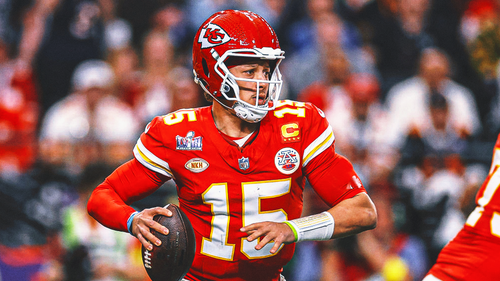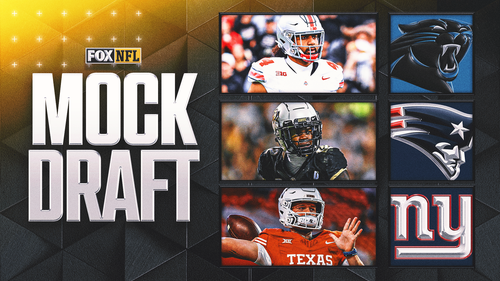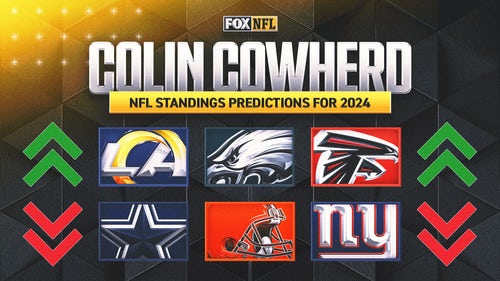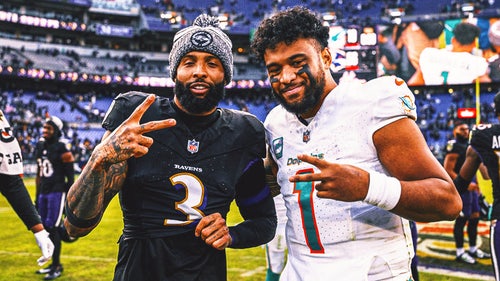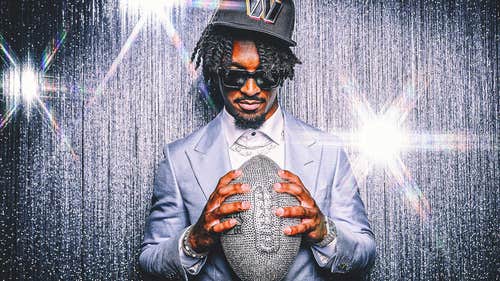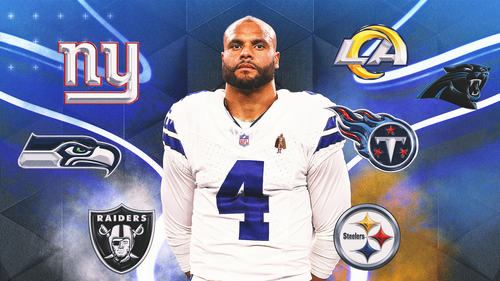
'Lone wolf' a big threat to spectators
A decade’s worth of pat downs, metal detectors and Las Vegas-like video surveillance has made the millions of fans who stream into stadiums and arenas around the nation less at risk of a terrorist attack.
The same league executives, law- enforcement officials and independent security experts who make that assertion agree, however, that a new threat presents a challenge to fan safety: the lone wolf.
“We had the attacks of 9/11 where it was al Qaeda, an organized terrorist group,” NFL Director of Strategic Security Jeff Miller told FOXSports.com. “Now, if you look across the landscape you see the greatest threat to mass gatherings in the United States is the homegrown violent extremist. This is somebody who is off (law enforcement’s) grid and through the use of propaganda on the Internet is encouraged to act out.”
It’s a threat that the NFL — which has scheduled most of its teams to open regular-season play on Sunday, the 10-year anniversary of the terror attacks — and other leagues really began to hone in on since Faisal Shahzad, an American immigrant from Pakistan, attempted to set off a car bomb in Times Square in May 2010. The makeshift bomb inside Shahzad’s vehicle did not detonate, but reverberations were felt nonetheless.
“We certainly have reason to be concerned about improvised explosive devices entering one of our stadiums,” said Earnell Lucas, Major League Baseball’s senior director of security and facility management. “One person can have a device packed into a vehicle or bring an explosive device or harmful substance into a facility. This is something we look for every day to ensure our fans, players, coaches and umpires are protected in the post-9/11 world.”
Miller said that the NFL has not been told about a “specific credible threat to any of our stadiums.” A spokesman for the Department of Homeland Security refused to comment for this story.
The intelligence gathering and sharing process established in the months after the attacks on World Trade Center and Pentagon continues. League and stadium officials continually receive terror-related briefings from federal authorities, and they work closely with the Joint Terrorism Task Force, which pulls from agencies like the FBI along with state and local authorities. Conferences are offered on a regular basis at which experts from around the world gather to share new ideas to keep fans safe.
“Before 9/11, we did not have these measures in place,” said Maj. Kevin A. Putnam, who heads the special-operations division of the Prince George’s County (Md.) police that patrols the Washington Redskins’ FedEx Field. “We work with our federal partners, receive intelligence briefings and share information about a potential threat. We’re definitely safer in my opinion.”
No games have been canceled as a result of any threats since play resumed after 9/11, and the last terror-related attack on a US sporting event was carried out at the Atlanta Summer Olympics 15 years ago. (The bomb left in a backpack by domestic terrorist Eric Robert Rudolph killed two and injured more than 100.)
Joel Henry Hinrichs III, an engineering student at the University of Oklahoma, detonated a backpack bomb not far from a packed Oklahoma Memorial Stadium as the Sooners played Kansas State in 2005. Only Hinrichs died, and authorities did not consider it a terrorist act since they determined he was not motivated to harm others.
Stadiums and arenas — especially during major events like the Super Bowl and World Series — do make attractive targets for terrorists. For that reason, metal detectors are used more frequently, perimeters around the stadiums are widened, no-fly zones are implemented and leagues employ a more stringent credentialing process.
But former New York and Los Angeles police chief William Bratton said fans need only look next to them in the stands or scan the parking lot to eye a more imminent threat.
“The fact remains that the issue for most fans is the potential for fan-on-fan violence,” said Bratton, chairman of Kroll Inc., a risk-management company. “But even with the sheer magnitude of gangs who go to organized sporting events in this country, the number of incidents that make news on the local or national level are minimal. You could probably count them on one hand.”
Bratton was hired as a consultant by the Los Angeles Dodgers in the aftermath of one of the most brutal fan assaults in memory. San Francisco Giants fan Bryan Stow was left with serious brain injuries after an attack outside Dodger Stadium in April. Last month, two people were shot after an Oakland Raiders-San Francisco 49ers preseason game, and another was assaulted in the bathroom during the same game; two of the three were left with serious injuries.
MLB has used the resident security agents — off-duty law enforcement officers — since 1986. Duties for each agent ranged from policing tobacco use in the minor leagues to ensuring the overall safety of those at the ballpark. After 9/11, the security agents began to receive terrorism training.
In the NFL, a text-messaging system has been put in place so unruly fans can be reported to security. While often used to report binge-drinkers who have lost control, Miller said the system could also be utilized to flag possible terrorist activity.
“We need fans who come out to our venues to tell law enforcement if they see something that’s unusual or makes them feel uncomfortable,” said Miller, a former commissioner of the Pennsylvania State Police. “Every US citizen should have a sense of their own surroundings and take personal responsibility for their own safety and security and that of their neighbors.”
The more invasive security measures have met with some resistance. Lawsuits were brought by fans in San Francisco, Seattle and Tampa Bay after the NFL first mandated teams subject fans to pat downs in 2005, although the searches were upheld in each instance by either state or federal judges.
“There is generally a feeling of acceptance to the fact that we need to take certain steps to ensure fan safety,” Miller said. “It’s a free society and you can’t shut down every (terrorist) opportunity because people are always moving around and we have a Constitution. So, we have to do things a certain way from a law-enforcement perspective.”
That means longer lines as purses and backpacks are checked. Fans at some stadiums may be able to bring their sandwiches from home only in a clear bag instead of a paper one. Cars entering parking structures may be randomly searched.
“The good news is that security is getting better,” Bratton said. “The American sport experience is largely a safe one, and there are a lot of people out there focused on making it safer.”






































































































































